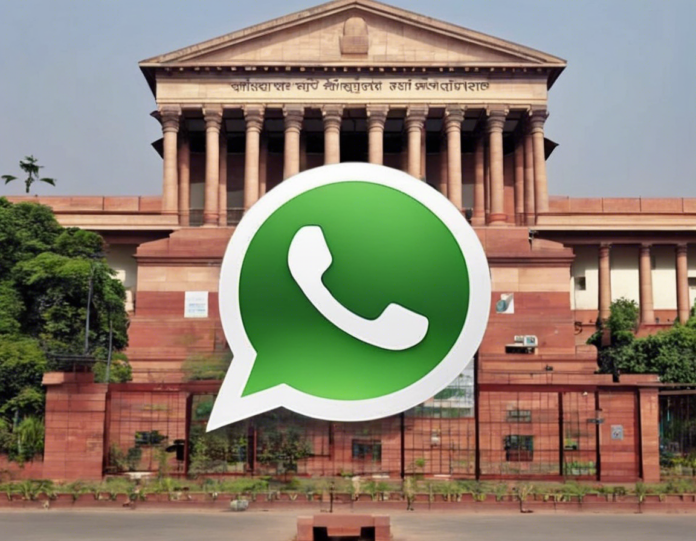In a recent landmark ruling, the Delhi High Court has upheld the use of end-to-end encryption by messaging platform WhatsApp. This decision marks a significant victory for user privacy and data security in the digital age. The court’s decision reaffirms the importance of encryption in safeguarding sensitive information from unauthorized access and interception.
End-to-End Encryption: Ensuring Data Privacy
End-to-end encryption is a security protocol that ensures the privacy of communication by encrypting messages in such a way that only the sender and recipient can access the content. This means that even the service provider, in this case, WhatsApp, cannot view the messages exchanged between users. As a result, end-to-end encryption provides a high level of security and prevents third parties from eavesdropping on conversations or intercepting sensitive information.
Legal Implications of Encryption
The debate surrounding encryption often centers on the tension between privacy rights and law enforcement needs. While encryption is essential for protecting users’ data from hackers and cybercriminals, it can also be used by malicious actors to conceal illegal activities. This has led to calls from law enforcement agencies for backdoor access to encrypted messages to aid in criminal investigations.
WhatsApp’s Stand on Encryption
WhatsApp has been a strong advocate for end-to-end encryption, emphasizing the importance of privacy and security for its users. The messaging platform, which is used by over two billion people worldwide, has consistently maintained that it does not have access to the content of messages exchanged between users. This commitment to encryption has been integral to WhatsApp’s appeal among users who value their privacy.
Delhi High Court Verdict
In the case before the Delhi High Court, the petitioner had challenged WhatsApp’s use of end-to-end encryption, arguing that it enabled criminal activities to be conducted beyond the reach of law enforcement. However, the court ruled in favor of WhatsApp, recognizing the importance of encryption in protecting users’ privacy and upholding their right to secure communication.
Impact on Privacy Rights
The Delhi High Court’s decision sets an important precedent for data privacy and encryption standards in India. By validating WhatsApp’s use of end-to-end encryption, the court has affirmed the rights of individuals to communicate securely without fear of surveillance or intrusion. This ruling is a significant win for privacy advocates and reinforces the importance of encryption in the digital landscape.
Future Implications
As technology continues to evolve, the debate over encryption and privacy is likely to intensify. Governments and regulatory authorities around the world are grappling with the challenges posed by encrypted communication platforms and the implications for law enforcement and national security. The Delhi High Court’s ruling provides a valuable perspective on balancing these competing interests while prioritizing the protection of user data.
Conclusion
The Delhi High Court’s decision in favor of WhatsApp encryption underscores the critical role of end-to-end encryption in safeguarding user privacy and data security. This ruling reaffirms the fundamental right to secure communication without compromising on encryption standards. As the digital landscape evolves, it is essential to uphold encryption protocols that protect user data and ensure the confidentiality of online communication.
Frequently Asked Questions (FAQs)
1. What is end-to-end encryption, and why is it important for user privacy?
End-to-end encryption is a security protocol that ensures only the sender and recipient can access the content of messages, protecting sensitive information from unauthorized access.
2. Can end-to-end encryption be compromised for law enforcement purposes?
While there have been calls for backdoor access to encrypted messages, compromising encryption for law enforcement purposes could weaken security for all users and increase the risk of data breaches.
3. How does WhatsApp use end-to-end encryption to secure user communication?
WhatsApp encrypts messages using cryptographic keys that only the sender and recipient possess, ensuring that the platform cannot access the content of messages.
4. What are the potential implications of weakening encryption standards?
Weakening encryption standards could compromise user privacy, making sensitive data vulnerable to cyberattacks and surveillance.
5. How can individuals protect their data privacy in the digital age?
Individuals can safeguard their data privacy by using encrypted communication platforms, enabling two-factor authentication, and being cautious about sharing personal information online.












